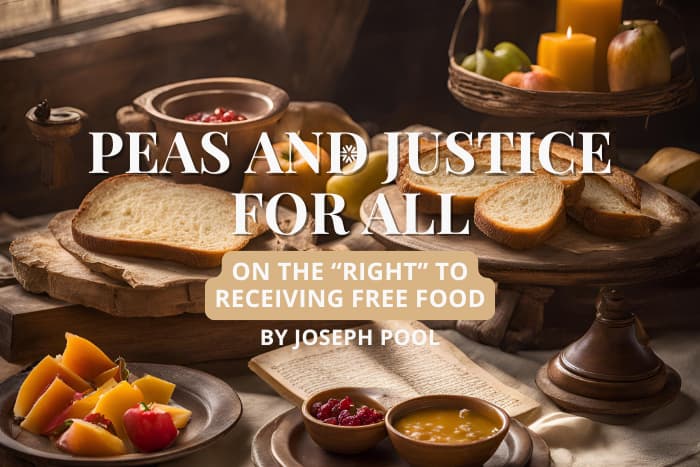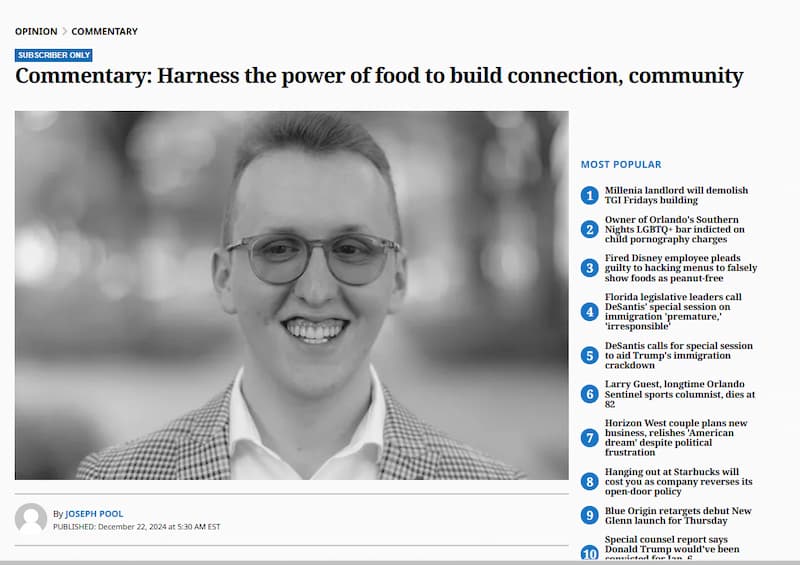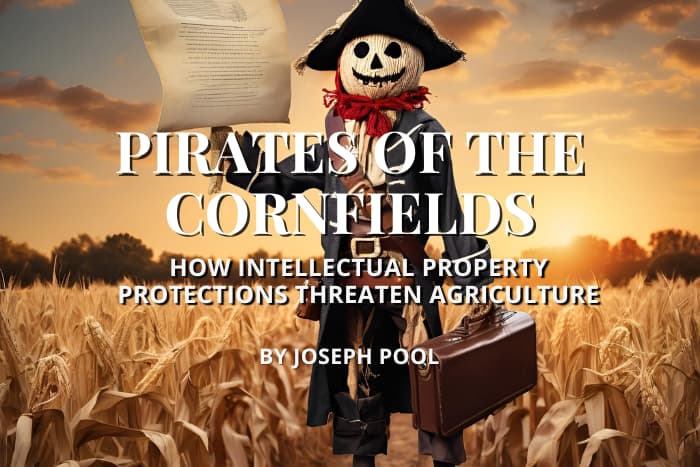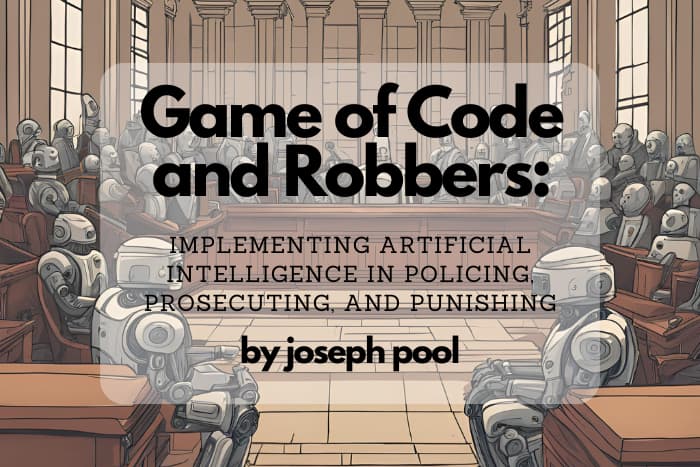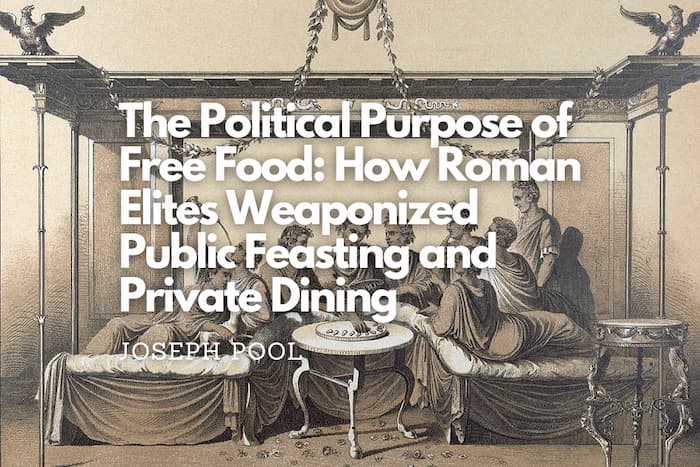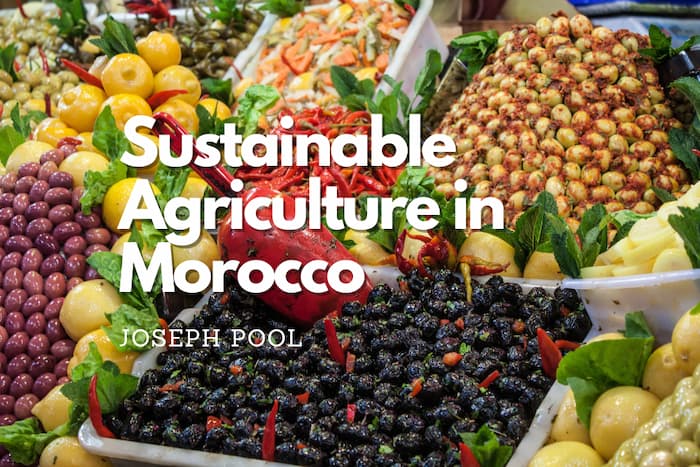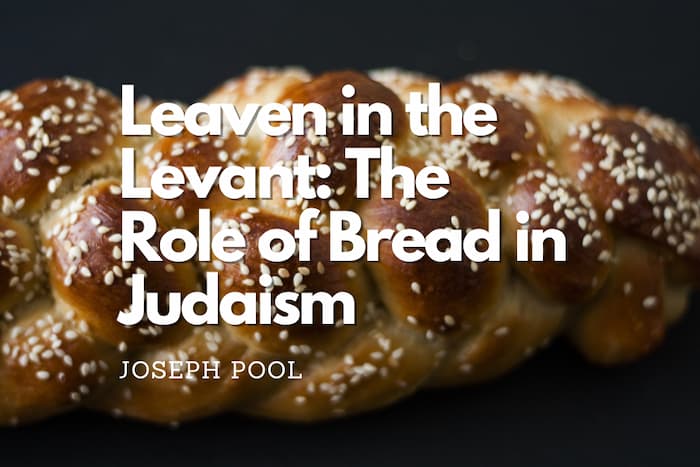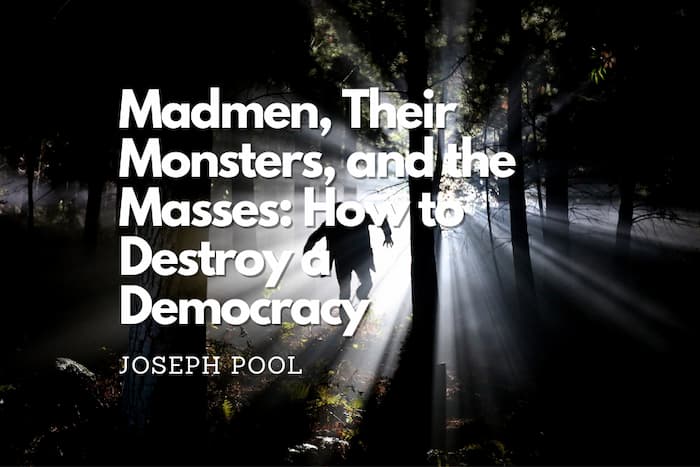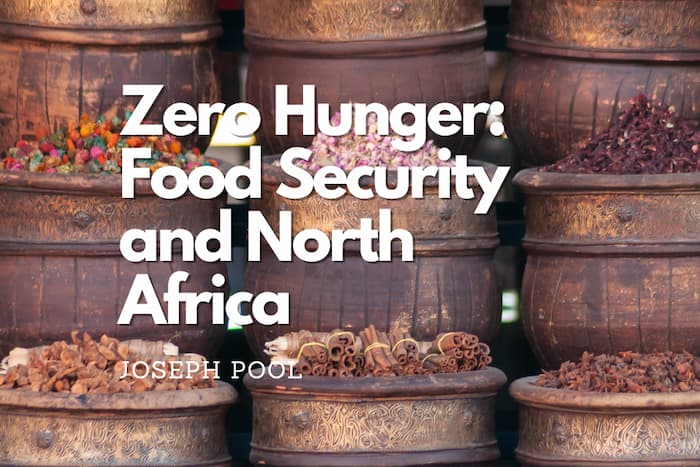Joseph D. Pool
Introduction
In the hallowed hall of the National Archive Museum in Washington DC rests the immortal document that officially incited the American Revolution and began the great American experiment in democracy and liberty. In a departure from other founding documents of its era, it called for a radical change to the paradigm of how government works and who it ought to work for. This document asserted that people have certain “rights” and that the primary purpose of the governments is to protect and provide for their fulfillment. In perhaps its most famous line, this Declaration of Independence proclaims, “We hold these truths to be self-evident, that all men are created equal, that they are endowed by their Creator with certain unalienable Rights, that among these are Life, Liberty and the pursuit of Happiness.–That to secure these rights, Governments are instituted among Men, deriving their just powers from the consent of the governed.”[1] No longer were governments the almighty gods who had the choice to either graciously bestow or gratuitously besiege the fundamental freedoms of citizens, but instead they were charged with being the unwavering, undying enforcers of these rights. From that profound point onwards, the concept of rights has continuously evolved and proponents of its expansion have questioned any and all pushback as everything from imperfect to inhumane.
In addition to their bold ideas for how people ought to be treated and how leaders ought to be tasked, the Enlightenment philosophers, Founding Fathers, and Framers had something else in common—they all needed food to live, as did every other citizen, ruler, and thinker of then and now. With the right to life guaranteed by most moral philosophers and the Declaration of Independence itself, it begs the question of what is the extent to which the government must be made to help ensure life. In short, is there a right to food? Moreover, what ought to be its extent? This paper examines the normative questions surrounding rights and applies them to the topic of food. Through a historical and philosophical inquiry and with economic and ethical considerations in mind, it will attempt to argue that there should be some assurance of nutrients afforded to those who need it. This argument will be one designed to be digestible to all and will address the counterarguments and concerns of those whose stomachs may be upset by its claims and conclusion.
Considerations and Definitions
Philosophy is not just the Ancient Greek practice of sitting in a circle in a cave and pondering the purpose of life. It is the careful, often structured examination of both what is—these objective, observable tenets and things—and what ought to be—these subjective, situational ideas and envisionments. As it relates to the realm of economics and public policy, philosophy asks the normative questions—what should be done, how it should be done, why it should be done—that provide the basis for meaningful legislation and leadership. An economist can share the overall budget and rate of inflation but these normative questions can turn those statements into actionable directions and decisions. This question of food and the potential right that exists to be provided with it should be treated as a normative one of what ought to be, not a simple one of what currently is. Moreover, this should not be treated as policy prescription as it addresses the ethical arguments, not some of the logistical and political ones.
Before any argument can be made, it is crucial to begin with the defining of terms and the contextualization of these points. As defined by the Stanford Encyclopedia of Philosophy, “Rights are entitlements (not) to perform certain actions, or (not) to be in certain states; or entitlements that others (not) perform certain actions or (not) be in certain states.”[2] This definition is one commonly thought of in certain circles and taught in classes, but itself is the result of thousands of years of discourse and debate going back to Plato[3] and likely to even earlier thinkers.
When discussing rights and applying them to economic and political questions, it is important to make a distinction between negative rights and positive ones. As explained by the Alabama Policy Institute, “A ‘negative right’ restrains other persons or governments by limiting their actions toward or against the right holder. In other words, it enables the right holder to be left alone in certain areas.”[4] Negative rights cover all the freedoms from something. The right to free expression of beliefs could be reworded as a right from censorship. The right to life means freedom from it being unjustly taken away. In this way, it is one of these negative rights. On the other hand, it can be made into a positive right and argued as such. As the Alabama Policy Institute expands, “positive rights essentially provide the right holder with a claim against another person or the state for some good, service, or treatment.”[5] These are not protections against something but instead guarantees of something being provided—even if at the expense of another. A right to life does not just mean protection against wrongful death, but could mean that the government must provide and fund a military[6] and police who can enforce peace and actively protect people. Many of the most contentious policy questions of the day come down to questions over whether or not these positive rights are valid and whether or not they should be provided for by the government to all the people.
Claims of “free college,”[7] “free healthcare,”[8] “universal basic income,”[9] and similar requests are ones made with their foundation in positive rights. Proponents believe that the government should not just protect something or someone but put active measures in place to help with provisions and promotions of the thing. The government must provide someone with an attorney if they can not otherwise afford one. The government—through taxpayer revenue—must cover the cost of attending public school for students within a certain area. While some extensions of this thinking are deemed as hotly debateable, there are many such examples of positive rights currently embedded in the American system that are relatively uncontested.
As established, the right to life is enshrined in the United States’ founding, and can be classified as both a negative right and a positive one. Building off of this framework, it will be argued that food, needed to sustain life, must be both a priority of the government and in some fashion a guarantee to the government’s citizens who would otherwise forfeit their rights to life.
Food for Thought
As shared in the opening paragraph of David Kaplan’s Food Philosophy: An Introduction, “Philosophers have been examining [food] for thousands of years ever since Plato detailed an appropriate diet in Book II of The Republic. The Roman Stoics also discussed the importance of food and eating, as did Enlightenment philosophers Locke, Rousseau, Marx, and Mill. Since the 1970s, philosophers have broadened the discussion to include animal welfare, hunger, agricultural ethics, and food justice to name just some of the topics addressed.”[10] This discourse is not new, but this connection between human rights, normative ethics, and development economics will hopefully introduce a new angle to the arguments made.
As the United Nations World Health Organization bemoans, “In 2023, around 2.33 billion people globally faced moderate or severe food insecurity, a number that has not changed significantly since the sharp upturn in 2020 … Among those, over 864 million people experienced severe food insecurity, going without food for an entire day or more at times.”[11] For all people, food is a basic human need. For billions of these people, there is no guarantee of it and no steady provision of it. This is to say nothing of the quality of the meals and ingredients or of the food that is expired, infested, or otherwise harmful to eat. Food itself is a basic human need. Per Maslow’s hierarchy of human needs and in accordance with current understandings of how the body works, food is a physiological necessity alongside shelter, breathing, and water. As the “rule of threes of survival”[12] suggests, one can survive at best three hours in a hostile enough environment, three days without water, and three weeks without food. When the environment and water conditions are not met, the amount of time without food is severely limited.
Hunger is an enemy of all nations. Listed in the United Nations’ ambitious 2030 Goals for Sustainable Development (The SDGs), goal #2 is “Zero Hunger.”[13] These goals were agreed to by all 191 UN member states, and subgoals and specific target metrics have been set and pursued in order to genuinely work towards this goal. Yet, by many estimates and analyses, the organizations working to solve issues of hunger have staggered or flatlined.[14]
This issue is exacerbated when the economics behind hunger are considered. As the World Health Organization adds, “With new food price data and methodological improvements, the publication reveals that over 2.8 billion people were unable to afford a healthy diet in 2022. This disparity is most pronounced in low-income countries, where 71.5 percent of the population cannot afford a healthy diet.”[15] Food deserts—the absence of local farms or places to get nutritious ingredients—are part of the issue, but even with abundant options, increasing costs prevent people from gathering the food they need for themselves and their families. They rely on cheap, additive-laden fast food to fill their hunger needs, and as a result end up overfed yet undernourished[16] in essential nutrients. According to Womenaid International, “Some sources estimate that 20 million people die each year of hunger-related causes.”[17] If current trends continue, millions more will die because they either can not access or afford food. This persistent problem has been eating away at countless lives and devouring the possibility to thrive for billions around the world. As food justice advocates, philosophers, and the families of the affected would urge, there truly needs to be something done about this crisis.
The Government Ought
The United States government and many subsequent Western democracies were birthed from the minds of Enlightenment thinkers as they gathered in their home salons and local coffee houses[18] to discuss the issues of today and the solutions of tomorrow. Many different philosophers contributed to this discussion and to the eventual state of the world. In his seminar work, The Spirit of Laws, Baron de Montesquieu urged a separation of powers and checks and balances between these powers as key to a government’s success and a people’s survival. Jean-Jacques Rousseau added that the government only derives power through the will of the people, and that it must hold up its end of the social contract or risk replacement and revolt. Other thinkers such as Thomas Hobbes and Adam Smith furthered the ideas of responsibility to the people and limitations on control respectively. One of the most notable of these thinkers was John Locke who argued in his Second Treatise of Civil Government that man was born free and with natural rights, and that all should be equal under the rule of law. Most importantly, Locke and a few of the other Enlightenment philosophers were adamant that the government was to be limited in power to oppress and directed in its purpose to provide for people’s wants, needs, and entitlements. Much of our Constitution’s basic tenets and most of the discussion on rights—both positive and negative—are the byproduct of these philosophers.[19]
Many of these philosophers and the modern theorists who have expanded on their work would agree that the primary role of the government is to provide for its citizenry. Whether life, liberty, and the pursuit of property, health and happiness, safety and stability, or even liberté, égalité, fraternité, these rights are the guiding lights that the government must shine. These guarantees have expanded from the initially-covered group of adult, white, male, landowning citizens[20] to people of all races, religions, genders, and geographic locations.[21] More than just the coverage of people expanding, the actual guarantees have increased in scope and scale.
The Framers of the Constitution rebelled against absolute monarchy and what they viewed as abject tyranny. Consequently, at the nation’s founding, the Constitution and Bill of Rights were piled high with negative rights for the people—safeguards against governments emerging that attempted what the King had done to them. Free expression, the bearing of arms, and protection against self-incrimination were negative rights provided to the people. The Framers were also highly-educated Enlightenment elites who wanted to bring their favorite philosophies with them. As such, the positive rights of being provided an attorney and the opportunity for States to expand their laws with even more provisions for people were set.
Since then, the focus of political philosophers and public policy have been both to solidify the negative rights and to expand what is considered a positive right. Social Security benefits, free elementary and secondary education, and the provision of healthcare to those who can not afford it are some of these proposals. Ideas of universal basic income, guaranteed liveable wages, and everything from housing to Internet access for those without it are merely the logical extension of this idea.[22] While some proposals are more costly and controversial than others, it would prove pointless to attempt to argue that some of these programs make sense whereas others don’t. Either the government must provide for its people’s needs, or it does not have the obligation to do so. Arguing that federally-funded education is not just okay but imperative but perhaps healthcare is only an optional luxury does not match this rights-based discussion. Logically, it follows that if societally-beneficial provisions such as the rights to education and voting are allotted to citizens and ensured by the government, so too should biologically-necessary entitlements such as life and the thing that sustains it—food.
As enshrined in the Universal Declaration of Human Rights and defined by the Committee on Economic, Social and Cultural Rights, “the right to adequate food is realized when every man, woman and child, alone and in community with others, has physical and economic access at all times to adequate food or means for its procurement.”[23] Per international law, food must be provided to those who need it, and enough nutritious food must be allotted that people can not just survive but thrive.[24] Human biological needs must be safeguarded and human dignity must remain intact. As such, starving one’s citizenry is illegal. Similarly, giving them just barely enough scraps to make it until the following day is immoral. The right to food needs clarity in its scope and scale as rights before have received. As much as a blanket statement or blissful platitude help spread the message and underscore human need, they are in desperate need themselves of further clarification and precision. People can not be fed with the words “adequate food” and will not be sated by faraway treaty signing ceremonies alone.
Solutions Sought
Alleviating hunger and allowing for the provision of food requires certain criteria to be met and certain expectations to be made clear. The first opportunity comes in how food itself is classified. If one believes that food is a basic need and the government is tasked with providing for basic needs, then one would believe that the government should provide food in a reasonable and respectable fashion. Treating food as merely a basic need yields little political or pragmatic ground.[25] This approach acknowledges that some individuals need food, but there is no enforcement mechanism or expectation that a certain group must be the one to provide for those needs. On the other hand, as argued by Uwe Kracht, “A human rights approach thus removes the charity dimension inherent in basic needs strategies, however valuable this may be, and emphasizes rights and responsibilities. It recognizes beneficiaries as active subjects and claim-holders and establishes duties or obligations for those against whom a claim can be held (objects or duty-bearers ) to ensure that needs are met.”[26] Governments, created and taxpayer funded to ensure entitlements, would therefore be responsible if food is classified not as a mere need but as a meaningful right. Food must be universally recognized as a right.
Once a right to food has been established, the next challenge is defining this right’s limitations and expectations. The second opportunity for success comes in using economics to justify genuine and generous food provisions. As reported on by Susan Morse, “Food insecurity costs the health system an additional $53 billion a year, according to Dr. Hilary Seligman, senior medical advisor for Feeding America and co-author of a study that looks at the issue state-by-state. Food insecurity can lead to diabetes, heart disease and other chronic conditions, all of which are costly to health and the healthcare system.”[27] These chronic conditions are on the rise and costly for both the afflicted and the taxpayer. As a Nationwide Retirement Institute report found, “Nearly one in five Americans (18%) say they skipped meals or didn’t buy groceries due to high inflation (including 28% of Gen Z and 23% of millennials). As food insecurity deepens, Americans are also struggling to pay for critical health care expenses. Many have cancelled or postponed plans in the past 12 months to see a specialist (14%), take a prescribed medication (10%) or get an annual physical (11%) due to high inflation.”[28] Forced to balance the high prices of food and healthcare, many people are choosing neither. As costs of healthcare, insurance, and human capital are passed on to those who can pay it, it is in the best interest of many to support preventative care—such as nutritious food—for both the ethics and economics involved.
With a right to food established and the right kind of food prioritized, the last objective in this task of providing free, nutritious food should be to determine who exactly is entitled to it. One simple solution is to treat it like other positive rights and say that everyone is equally entitled to it. Logistically, this may require the establishment of communal gardens in more cities, or the opening of a broader range of food pantries and banks across the country. Perhaps it could be facilitated with a combination of those two plans and a better targeting of programs like the Supplemental Nutrition Assistance Program (SNAP) to help with not just groceries and meals but agricultural investments like home gardens and hydroponic towers. These solutions all have their merits but also possess some drawbacks in feasibility and cost. This call to adopt (nutritious) food as a human right will be a potentially costly and challenging one, but it is a necessary one and will allow the millions suffering from food insecurity to participate in the wider economy and society when they no longer need to spend all their money on dire survival.
Counterclaims and Discourse
Not all parties are ready to digest this demand or swallow the possibly staggering upfront costs involved. These groups have concerns and hesitations which must be honestly repeated and redressed. The first likely pushback comes from the idea of positive rights themselves and the implication that the government or certain leaders could be compelled to spend money or effort for something. They may argue that this rights concept is abusable and its exploitation will result in untold trillions more of debt without meaningful outcomes to justify it. This objection ought to be challenged with a question over the historic and current existence of other positive rights. If this individual wants to keep education and basic healthcare on the table, food too must be there. If they do not believe the government is responsible for providing for people’s needs, they should be asked to reconcile with what exactly the point of funding a government should be and who exactly the government is intended to serve.
More pushback will come from the suggestion that the provided food must be nutritious and plentiful. They will question the ethical harm in providing people with filling fast food or alternatively with a carefully curated quantity of supplements that address dietary needs and nothing more. In response, the Trust for America’s Health provides an economic rebuttal, “Funding prevention [such as providing nutritious food] not only saves lives but it saves money; every dollar invested in evidence-based prevention programs yields $5.60 in savings.”[29] Unlike a costly, continuous healthcare death spiral[30], any cost in providing nutritious food dramatically reduces costs in healthcare needs down the patient’s path. The worry about costs from conservatives can be challenged with comparisons to the logic for increased defense spending—to save lives—and from libertarians with points about how overall government spending and taxpayer funding of healthcare may decrease over time. Food, recognized as a right and provided as both a public good and preventative treatment, will save the taxpayer money in the long-run and allow the destitute and hungry to put their money on economic and human development instead of basic survival needs.
Conclusion
The United Nations and various international groups have long called for food to be recognized as an entitlement. But few have considered the ethical and economic implications of this switch from a basic need to a basic right. Lives are saved, livelihoods are improved, and more cogent, cohesive answers are provided to the question of the government’s purpose. Under this new framework, people will be guaranteed life, liberty, and the pursuit of calories. People can live in a land in which the government stands for the provision of peas and justice for all.
BIBLIOGRAPHY
ACLU. “The Bill of Rights: A Brief History” (2002). https://www.aclu.org/documents/bill-rights-brief-history
Alabama Policy Institute. “Understanding the Difference Between Positive and Negative Rights” (n.d.). https://alabamapolicy.org/wp-content/uploads/2020/11/GTI-Brief-Positive-Negative-Rights-1-1.pdf
Amnesty International. “Healthcare is a Human Right” (n.d.). https://www.amnestyusa.org/healthcare
Astrup, Arne and Bugel, Susanne. “Overfed but undernourished: recognizing nutritional inadequacies/deficiencies in patients with overweight or obesity.” International Journal of Obesity 43, no. 2 (2019). https://pubmed.ncbi.nlm.nih.gov/29980762/
Backcountry Chronicles. “Wilderness Survival Rules of 3 – Air, Shelter, Water and Food” (accessed December 2024). https://www.backcountrychronicles.com/wilderness-survival-rules-of-3/
CESCR. “General Comment 12: The right to adequate food.” Global Health Rights (1999). https://www.globalhealthrights.org/instrument/cescr-general-comment-no-12-the-right-to-adequate-food/
Coffman, Dustin. “Pathways to Justice: Positive Rights, State Constitutions, and e Rights, State Constitutions, and Untapped Potential.” Marquette Benefits and Social Welfare Law Review 24, no. 2 (2023). https://scholarship.law.marquette.edu/benefits/vol24/iss2/4/
Council on Foreign Relations. “What Is the Enlightenment and How Did It Transform Politics?” CFR Education (2020). https://education.cfr.org/learn/reading/what-enlightenment-and-how-did-it-transform-politics
Harris, Douglas. “Research: Is free college a good idea? Increasingly, evidence says yes.” Brookings Institute (2021). https://www.brookings.edu/articles/is-free-college-a-good-idea-increasingly-evidence-says-yes/
Hyde, Tim. “Stopping the death spiral.” American Economic Association (2017). https://www.aeaweb.org/research/stopping-the-death-spiral
Igoe, Michael. “The U.N. plan to improve the world by 2030 is failing. Does that make it a failure?” NPR (2023). https://www.npr.org/sections/goatsandsoda/2023/09/21/1200693989/the-u-n-plan-to-improve-the-world-by-2030-is-failing-does-that-make-it-a-failure
Jefferson, Thomas. “Declaration of Independence” (1776). https://www.archives.gov/founding-docs/declaration-transcript
Kaplan, David. Food Philosophy: An Introduction. Columbia University Press (2020).
Kracht, Uwe. “Food is a Human Right.” World Hunger Education (n.d.). https://www.worldhunger.org/food-is-a-human-right/
Kutner, Luis. “Legal Philosophers: A Trilogy on Great Philosophers and the Law: Plato and Aristotle: Precursors of the Human Rights of World Habeas Corpus.” Marquette University Law Review 55, no. 2 (1972). https://scholarship.law.marquette.edu/mulr/vol55/iss2/3
Morse, Susan. “SDOH: Food insecurity adds $53 billion annually to healthcare costs.” Healthcare Finance (2019). https://www.healthcarefinancenews.com/news/sdoh-food-insecurity-adds-53-billion-annually-healthcare-costs
Nationwide, “Inflation taking a toll on health care and nutrition decisions in U.S.” (2022). https://news.nationwide.com/101722-americans-making-tradeoffs-to-pay-health-care-costs/
Rotondi, Jessica. “How Coffee Fueled Revolutions—and Revolutionary Ideas.” The History Channel (2020). https://www.history.com/news/coffee-houses-revolutions
Santens, Scott. “Someday we will look back and interpret the Constitution as having called for unconditional basic income all along. ” UBI Guide (2017). https://www.scottsantens.com/someday-we-will-look-back-and-interpret-the-constitution-as-having-called-for-unconditional-basic-income-all-along-grant-cordone/
Schwarz, Joachim. “Think, feel, and act rights-based.” Civil Society Academy International (n.d.). https://www.civilsocietyacademy.org/post/think-feel-and-act-rights-based
Stanford Encyclopedia of Philosophy,.“Rights” (2020). https://plato.stanford.edu/entries/rights/
Trust for America’s Health “The Value of Prevention” (2017). https://www.tfah.org/wp-content/uploads/2018/02/The-Value-of-Prevention.pdf
United Nations. “Goal 2: End hunger, achieve food security and improved nutrition and promote sustainable agriculture” (accessed December 2024). https://sdgs.un.org/goals/goal2
United Nations. “Universal Declaration of Human Rights” (1948). https://www.un.org/en/about-us/universal-declaration-of-human-rights
United State Congress. “ArtI.S8.C14.1 Care of Armed Forces” (accessed December 2024). https://constitution.congress.gov/browse/essay/artI-S8-C14-1/ALDE_00001076/
Womenaid International. “Hunger and World Food Day” (n.d.). http://www.womenaid.org/press/info/food/food4.html
World Health Organization. “Hunger numbers stubbornly high for three consecutive years as global crises deepen: UN report” (2024). https://www.who.int/news/item/24-07-2024-hunger-numbers-stubbornly-high-for-three-consecutive-years-as-global-crises-deepen–un-report
Ziegler, Jean. “What is the Right to Food?” Right To Food (n.d.). https://web.archive.org/web/20120118105225/http://www.righttofood.org/new/html/WhatRighttofood.html
Thomas Jefferson, “Declaration of Independence” (1776) ↑
Stanford Encyclopedia of Philosophy, “Rights” (2020) ↑
Luis Kutner, Legal Philosophers: A Trilogy on Great Philosophers and the Law: Plato and Aristotle: Precursors of the Human Rights of World Habeas Corpus (1972) ↑
Alabama Policy Institute, “Understanding the Difference Between Positive and Negative Rights” (n.d.) ↑
Alabama Policy Institute, “Understanding the Difference Between Positive and Negative Rights” (n.d.) ↑
United State Congress, “ArtI.S8.C14.1 Care of Armed Forces” (accessed December 2024) ↑
Douglas Harris, “Research: Is free college a good idea? Increasingly, evidence says yes” (2021) ↑
Amnesty International, “Healthcare is a Human Right” (n.d.) ↑
Scott Santens, “Someday we will look back and interpret the Constitution as having called for unconditional basic income all along” (2017) ↑
David Kaplan, Food Philosophy: An Introduction, p. 1 (2020) ↑
World Health Organization, “Hunger numbers stubbornly high for three consecutive years as global crises deepen: UN report” (2024) ↑
Backcountry Chronicles, “Wilderness Survival Rules of 3 – Air, Shelter, Water and Food” (accessed December 2024) ↑
United Nations, “Goal 2: End hunger, achieve food security and improved nutrition and promote sustainable agriculture,” (accessed December 2024) ↑
Michael Igoe, “The U.N. plan to improve the world by 2030 is failing. Does that make it a failure?” (2023) ↑
World Health Organization, “Hunger numbers stubbornly high for three consecutive years as global crises deepen: UN report” (2024) ↑
Arne Astrup and Susanne Bugel, “Overfed but undernourished: recognizing nutritional inadequacies/deficiencies in patients with overweight or obesity” (2019) ↑
Womenaid International, “Hunger and World Food Day” (n.d.) ↑
Jessica Rotondi, “How Coffee Fueled Revolutions—and Revolutionary Ideas,” (2020) ↑
Council on Foreign Relations, “What Is the Enlightenment and How Did It Transform Politics?” (2020) ↑
ACLU, “The Bill of Rights: A Brief History” (2002) ↑
United Nations, “Universal Declaration of Human Rights” (1948) ↑
Dustin Coffman, “Pathways to Justice: Positive Rights, State Constitutions, and e Rights, State Constitutions, and Untapped Potential” (2023) ↑
CESCR, “General Comment 12: The right to adequate food” (1999) ↑
Jean Ziegler, “What is the Right to Food?” (n.d.) ↑
Joachim Schwarz, “Think, feel, and act rights-based” (n.d.) ↑
Uwe Kracht, “Food is a Human Right” (n.d.) ↑
Susan Morse, “SDOH: Food insecurity adds $53 billion annually to healthcare costs” (2019) ↑
Nationwide, “Inflation taking a toll on health care and nutrition decisions in U.S.” (2022) ↑
Trust for America’s Health, “The Value of Prevention” (2017) ↑
Tim Hyde, “Stopping the death spiral” (2017) ↑
